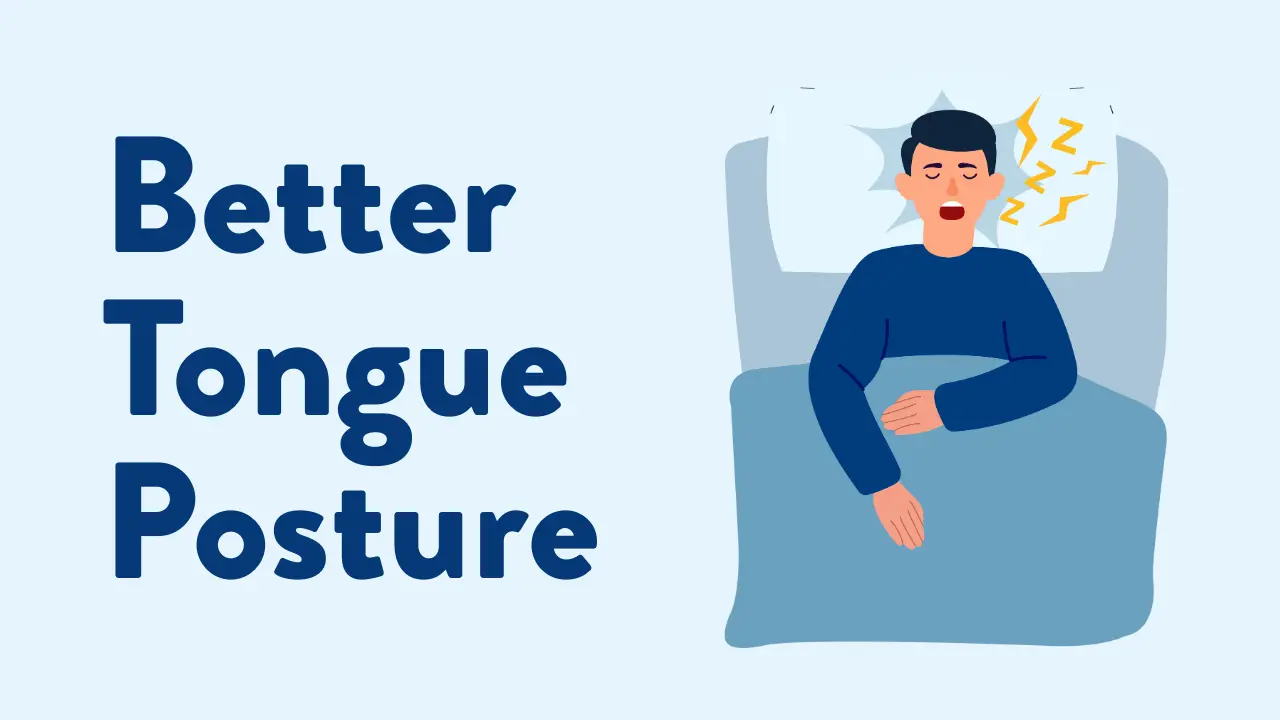Having an ingrained natural tongue posture will help to prevent subconscious mouth-breathing habits from ruining your sleep.
If you’ve ever heard of “Mewing”, that’s basically what we’ll be discussing here.
Your tongue should naturally stick to the roof of your mouth whenever you’re not eating, drinking, or vocalizing. If you’re now aware that you don’t do this, congrats!
Improvements can be made!
How to Develop a Better Tongue Posture
Now, let’s not get in a tizzy over whether this will make you look like the Crimson Chin (if you’re familiar with mewing and its facial prowess promises), that’s not the point here.
The point is that developing a habit of resting your tongue on the roof of your mouth will eventually carry over into sleep as your muscle memory develops.
So even if your mouth opens a little, your tongue will be stuck on the roof of your mouth (hopefully), helping to prevent airway collapse and mouth breathing.
How to Mew
The process is rather simple, here’s how I learned:
- Sound out the letter “n”. You’ll notice that the tip of your tongue is resting just behind your teeth.
- Keep your tongue in this position and swallow gently. You should notice that your tongue becomes suctioned to the roof of your mouth.
- Congrats, that’s it! Keep at it for a month or so, and you’ll be rid of mouth breathing and that annoying mouth tape forever.
Tips When Getting Started
- In the beginning, you’ll have to constantly remind yourself to do this. You may find it hard to mew and un-mew quickly, especially in social situations, so while mewing you’ll find yourself answering people with “mmm, mhm” more frequently than you’re used to. It’s annoying at first but it’s just a part of the process.
- I’m not sure why, but many people find they produce a lot of excess saliva in the first 2-3 weeks of this. I did. I thought I broke myself. It was super annoying but yes, it went away.
- It may be useful to mouth tape at night while you’re learning to mew properly and develop the muscle memory necessary to keep your tongue in position all night long.
That’s pretty much it!
If you don’t automatically rest your tongue like this, a huge improvement in your nighttime breathing pattern will likely take place once you learn.
Good luck!




